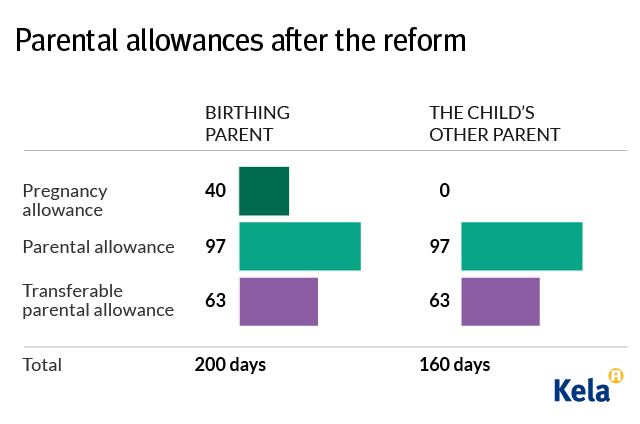-
Management
Monday December 8, 2025💻 “Good engineering management” is a fad
The conclusion here is clear: the industry will want different things from you as it evolves, and it will tell you that each of those shifts is because of some complex moral change, but it’s pretty much always about business realities changing. If you take any current morality tale as true, then you’re setting yourself up to be severely out of position when the industry shifts again in a few years, because “good leadership” is just a fad.
The argument about the morality tale feels a bit misshaped and this is what I take the biggest issue with. Agreed - business realities drive what situational management could be effective. Presenting leaders as simple vessels or rather mercenaries of the morality of the day feels reductive. Being adaptable and effective is one thing, lack of own moral compass is another.
Nevertheless, excellent breakdown of evergreen EMs skills. Absolutely worth a read even if you don’t buy the complete narrative.
-
Management
Sunday January 12, 2025💻 Unexpected Anti-Patterns for Engineering Leaders — Lessons From Stripe, Uber & Carta
People want metrics to show reality. They want them to show the truth. But metrics are only partly about showing the truth. The other half is about educating people, to inform their mental model about how the truth works.
This is a constructive approach to metrics. Measurement is traditionally a contentious topic due the many ways it could go wrong. However, even the wrong kind of metric could be useful for learning and generating insight. The key premise is to act, learn and move forward.
-
Management
Wednesday July 3, 2024💻 I work for a big company, but today I heard a person “laugh in corporate” and this caught me off guard. Laughed in nerd on the inside and moved on. 🤓
-
Management
,Gaming
🎮 💻 On Xbox closing down several studios
Friday May 10, 2024This week’s decision by Xbox to close entire studios stunned me. The nightmare of widespread layoffs in the industry doesn’t seem to seize. I’m disappointed of this particular piece of news for several reasons.
I genuinely root for Xbox’s vision of play anywhere. Game Pass and demolishing platform exclusives are pro-gamer pillars in their strategy. That said, Game Pass is not all good news for game developers. It can give critical exposure, especially to smaller titles, but in other cases it can also erode sales and thus commercial success. In my region Game Pass for PC goes for 10 euros/month. Considering the library and how often it’s updated it’s an extremely good value - but does it work?
Closing entire studios wipes out whole work cultures. This is substantially different to e.g. canceling a project, partially reducing workforce or pivoting to a new direction. In these examples, the intangibles of what makes a great team can be largely retained. Closing an entire studio extinguishes something invisible in addition to the business itself.
A sound business decision for Xbox is beyond the scope of a single studio. This is not a rant against capitalism, it’s not the point. I am disappointed because the studio closures show the worst of having a multi-studio corporate owner, VC or the like. Xbox itself is not Microsoft - citing Microsoft’s overall profit is almost irrelevant. Xbox may derive more value by closing a studio than selling it, e.g because of IP ownership and competition considerations. What hurts is that had the studios been viewed in isolation and with a more fully vested owner they might have been considered viable.
Ultimately, I believe Xbox made the decisions that support its long-term goals best. Their operating profit based on FTC leaks from last year is in the 10% ballpark. Revenue for Xbox grew only by virtue of the Activition Blizzard acquisition. The gaming industry hasn’t meaningfully grown in the past year and feels very saturated. Clearly, both Arkane Austin, following the Redfall flop, and Tango Gameworks, following Shinji Mikami’s departure, would have a challenging road ahead. I don’t believe the studios were judged only on the basis of their most recent performance. It’s about future outlook and profit appetite.
Taking all into account, I’m still left wondering if the corporations consolidating the gaming industry at the moment are truly building the world game developers and gamers want to see. This is why I’m having such a hard time reconciling this particular blow from Xbox.
-
Management
Friday January 26, 2024💻 James A. Whittaker, Jason Arbon, Jeff Carollo, How Google Tests Software
“If the feedback takes more than a few minutes, add more machines. CPU hours are cheaper than developer context switches and idle time.”
Those were the times. Now we live in a culture of cost efficiency that sacrifices developer experience without batting an eye. Cloud bills are much more tangible cost than loss of productivity to the average exec. This trend also tells an unpalatable story about the amount of work without impact.
-
Management
Sunday January 7, 2024💻 Flow Metrics for Scrum Teams (PDF)
The dirty little secret of MCS [Monte Carlo Simulation] is that we are assuming that the future we are modeling roughly looks like the past we have data for. The beauty of using professional Scrum is that in most contexts this is a safe assumption.
You call it a “dirty little secret”, I call it a major stink 🤷🏻♂️ Anyway, still keeping an open mind, this book is a very good resource if you find yourself in the midst of an agile transformation (especially one that puts emphasis on estimates). Like we all do every few years. Ha. ha. ha. 🥁
-
Casual
,Management
2023: an assorted list of personal takeaways
Wednesday December 27, 2023📓 Reviewed my weekly takeaways in 2023. Unsurprizingly to me, the themes that emerged are wellbeing, work and career, and productivity. It is also clearly apparent how intertwined they all are. There is enough here to repeat and work on for many years ahead. Here goes.
🪴 Wellbeing
- Burnout symptoms - exhaustion, cynicism, ineffectiveness
- Hobbies and pursuing interests are effective recovery mechanisms
- Messy flat - messy mind
- Never too late in the day or week to write a journal entry
- Take care of yourself so you can take care of others
- At your limits, it is OK to say no and focus on recovery
- Poor short-term memory is a symptom of too much stress
- Ominous meetings and days are often better than anticipated
- Resilience is showing up every day
👨💻 Work and career
- Managing enthusiasm is essential to keeping things simple
- Career growth requires crossing the boundaries of your role description
- Challenging situations are an opportunity to build skill and improve the status quo
- No one is going to remember your work achievements in a year
- Know your “chase the fun” and “a place to call home” activities at work for effective recovery
- There is no place for guilt in have to take a sick leave
- Do not exhaust your “complaint budget”, i.e. pick your battles
- Trust the fundamentals especially when feeling overwhelmed
- The role of leadership is to maintain the necessary tensions and the constructive interaction stemming from them
🤹 Productivity
- Scrying your list is useful - “needs to be done today” or ”makes tomorrow easier”
- Even a single daily journal entry makes it easier to reflect during the weekly review
- Returning from vacation in the middle of the work week is a neat recovery trick
- Book time for focused work, delegate, work on unique leverage, be kind to yourself
- Preparation pays off, think and write, write and think
📚 Misc
- Making bread requires experimentation - try, learn, improve
- I think I have a harder skin then I actually do
- “Jos kukaan ei suutu, mikään ei muutu”
-
Management
Friday December 22, 2023💻 It’s hard to get company’s year-end messages right this year. Especially when many people lost their jobs and colleagues to layoffs. My LinkedIn feed is a mixture of #opentowork posts and “profound” reflections of great achievements… coming from the same companies. It stings. While life goes on and we should celebrate another trip around the Sun, I think we can benefit from more humility.
-
Management
Tuesday December 12, 2023💻 Esko Kilpi: Why Should I Work with You
A creative organization thrives on the tension that arises from widely different but complementary abilities and views working with one another in enriching interaction.
I’ve been thinking about the concept of having a healthy tension between conflicting ideas. And remembered Esko Kilpi wrote about something very similar.
-
Management
Tuesday December 12, 2023💻 RTO vs WFH: my default recommendations for remote vs colocated teams
Because this difference is contextual, any large organization that tries to impose a one-size-fits-all policy is going to fail. The only broad policy that can possibly succeed is one that is flexible based on the needs of the teams and the individuals on that team.
This is a thoughtful article. Made me think even if I have different opinions on some of the default recommendations. My bias is towards the remote-first camp. Yet it’s clear as day there isn’t one-size-fits-all correct solution.
-
Management
💻 2023 Groupthink in Tech
Tuesday October 10, 2023It may be early but somehow started thinking about 2023 in review already.
So a bit tongue-in-cheek 2023 technology executives’ groupthink list:
- Efficiency = Layoffs + ? = Profit
- Transformation, i.e. reorg
- AI in strategy
- Return to office
Photo: ”Let that sink in” (Oct 2022, source The Economist).

-
Management
Sunday November 13, 2022Every day, no matter how successful we become, we need to earn our success. We need to be kind and appreciative; we need to surround ourselves with people who will push back on us and question our beliefs and actions. We need to demonstrate humility. You are never more susceptible to a huge mistake than right after a big win, when you begin to believe the falsehood that your success is all about you. Yes, you’re brilliant and hardworking, but greatness is in the agency of others, and timing (and other features of luck) is everything.
-
Management
💻💬 Do you challenge your beliefs often enough?
Friday October 21, 2022
Photo by Patrick Perkins.
As professionals we often put ourselves in other people’s shoes. Be it customers, peers, managers. We benefit from empathy and critical thinking. I like playing devil’s advocate. This often requires challenging own core beliefs.
Many of us are blessed with working with a team of smart people. And smart people are darn difficult to argue with. They have good arguments and often juxtaposed valid perspectives. Navigating this sometimes requires (😱) changing our own minds.
Here’s a few ideas I’ve come across recently that have challenged some common beliefs core to my work. Have fun.
We may not need teams anymore
As we’ve stated in past research, true teams have a shared mindset, a compelling joint mission, defined roles, stable membership, high interdependence, and clear norms. Co-acting groups represent a loose confederation of employees who dip in and out of collaborative interactions as a project or initiative unfolds.
This reminds me of the notion of “dynamic teams” I read about in uni. It’s startling to say that we don’t need teams. And it’s also not quite like that. There are some interesting benefits, though. Co-acting groups band and disband rapidly based on desired outcomes. I’d venture that start-ups are much better at this than larger corporations. There is potential of making disruptive re-orgs a thing of the past. Co-acting groups, or dynamic work comunities, are an enviable organizational capability.
The open office is not great for workers
NYT: Opinion | The Immortal Awfulness of Open Plan Workplaces
For decades, research has found that open plan offices are bad for companies, bad for workers, bad for health and bad for morale. And yet they just won’t die.
I admit this something that’s not new to me, ever since Peopleware at least. Yet, I also understand the challenges that drive us towards the open space multi-func spaces of today. There is no one-size-fits-all solution and we need to be respectful of this. However when was the last time your company experimented with private offices. (I’m not laughing, you are laughing. 😀)
Objectives and metrics may prevent us from achieving our higher goals
Kenneth Stanley: Set The Right Objectives [The Knowledge Project Ep. #148]
“Actually the subjective judgments are the interesting ones because the objective judgments are easy. You don’t need a degree to just measure something.”
Objectives and metrics may restrict the required creativity when dealing with complex problems. Our good-intentioned drive for objectivity can also trip us up. Subjective judgements and experiences are super valuable. “You can’t improve what you don’t measure.”… Really?? I beg to differ. By the way, I’m an active participant and proponent of rolling out OKRs in our organization. It definitely helps to keep the hype in check.
-
Management
💻 Be more than a shield to your team
Sunday September 25, 2022It is a common notion that a manager’s most important job is protecting their team from distractions. It popped up recently in a conversation with a teammate who thought I’m doing it well. This triggered me in 2 ways. First, I’m not actively shielding the team from anything. Second, I’ve always found this idea at odds with transparency and empowerment.
The key point to make here is that a change of perspective can achieve better results. Consider a shift from filtering noise to enabling working systems. By another common saying, the product of a team’s manager is their team. Instead of being a local shield, a manager can achieve positive network effects in the wider organization by improving the system, i.e. ways of working.
There is indeed a problem to solve. The cognitive demands on anyone in a highly connected workplace can be overwhelming. Therefore, a manager benefits from high tolerance to uncertainty. And their focus should be on helping the team make sense of the world. The firehose of information could be available to most in a company. The way for a manager to bring value is to give their take on a cohesive narrative.
In summary, instead of being a shield to your team - be a sense-maker and enabler for the whole organization.
Photo by Jonathan Allison.

-
Management
Sunday September 4, 2022💻 What better way to spend Sunday evening… than to fiddle with cross-posting to LinkedIn. 🙃 In this iteration:
- IFTTT picks up the new post from the blog category RSS feed
- IFTTT sends to a Buffer queue
- Buffer will eventually post to LinkedIn based on its schedule
Curious how images and links will perform through the pipeline. If it works, this would be neat as Buffer would add an extra level of control. However, it’a annoying and complicated to have so many tools in the process. At least, this all should work with the free tiers.
Photo by Sergey Zolkin

-
Management
Sunday September 4, 2022💻🎙 Marshall Goldsmith: The Essentials Of Leadership [The Knowledge Project Ep. #142]
Happened to listen to this podcast episode again “by mistake” today. It packs a lot of wisdom on leadership and coaching. Too much to process on a single listen. It was easy to just let it play once I realized what it was. Some personal highlights:
- if you want to change be rigorous about follow-up
- you can make an idea 5% better by providing your input but diminish the commitment of others by 50%
- breathe, let it go
- never start a sentence with “no”, “but”, “however”
- never base your value as a human on actual outcomes; do your best
- we are here to make a positive difference in the world, not to prove how right or smart we are
Photo by Josie Weiss

-
Management
💻 A burnout guide for managers incl. brief annotations
Monday August 22, 2022I recently read an overall excellent guide on burnout for managers. Here’s a few of my key take-aways.
Burnout is a psychological state caused by prolonged stress from a job.
There are three key characteristics of burnout:
- Overwhelming exhaustion.
- Feelings of cynicism.
- And a sense of ineffectiveness.
The above characteristics could manifest in different combinations. Also the intensity could be distributed unevenly. This was illustrated well in the stories in the guide. I suppose, ultimately, burnout incapacitates us beyond a sense of ineffectiveness.
burnout is really a ‘stress experience within a social environment’.
Burnout occurs in the context of one’s environment. People have different responses and levels of resilience. It is, however, unfair to put the full responsibility of burning out onto the individual.
The JD-R model classifies every occupation into two general categories: job demands and job resources.
This model of looking at the problem is simple. I like it because it intuitively feels as first principles. Managers can affect the context in which potential burnout occurs by affecting the job demands and job resources. This is the balancing act of every team manager. What resources can be made available for people such that we can cope with high job demands?
Here’s the bad news: we know very little about recovering from burnout. What we do know are two things:
- Individual interventions don’t work — and by individual interventions we mean interventions while the person continues to be at the workplace that caused the burnout.
- If you remove yourself from that working environment, you will recover.
The second point is crucial. Something needs to change and it doesn’t mean a person needs to resign. It means adapting or changing the role of the individual significantly enough so that they can recover. You can’t expect that a person will just regain their step in the same environment that led them to burn out in the first place.
An aspect I would have wished for the guide to cover is circumstances outside of work. There is no deficit of what to worry about on an any given day. The pandemic, war, climate crisis… all cause substantial anxiety in the lives of many of us. In that sense, factors outside of the work place also could contribute to burnout.
Remember to replenish your resources.
Photo by Steve Johnson

-
Management
Friday July 22, 2022The “idolatry of innovators,” leads to the misguided notion that people (usually men) of great achievement (usually in tech) should not be criticized, are not bound by a code of ethics, and are above the law.
-
Management
Monday July 11, 2022💻 If you are interested in the topic of diversity quotas, check out this short Economist article (Internet Archive). My takeaways: 1️⃣ effects of quotas can be substantial, and in this case, positive 2️⃣ quotas can be a corrective yet discriminative tool.
Photo: Robert Anasch

-
Management
Friday July 8, 2022💻 Commendable reform of parental allowances in Finland. The flexibility of transferrable days, however, still keeps the door open for negative effects. Cultural biases and unequal pay can still swing the balance wrong. Steps in the right direction nevertheless! 👨👨👧

-
Management
Tuesday July 5, 2022💻 Companies embrace hybrid and gather a lot of feedback. Yet there seems to be little new in design for software teams. More of open floor plans and, if lucky, a bit less overbooked “booths” and collaboration spaces. Any dev here loving their office space? Why?
Photo: Annie Spratt
